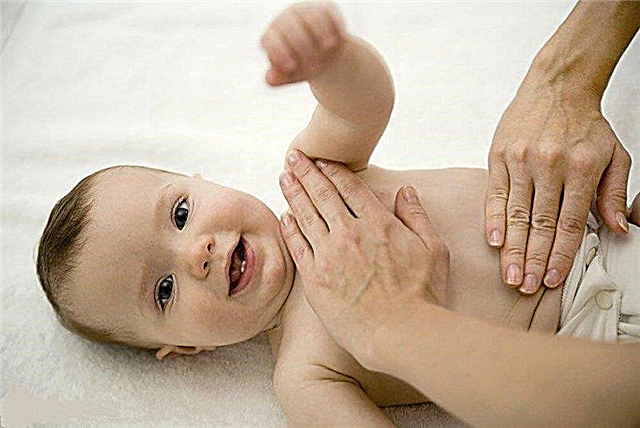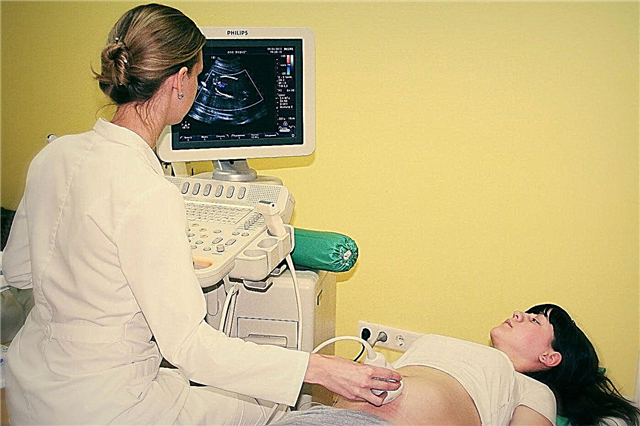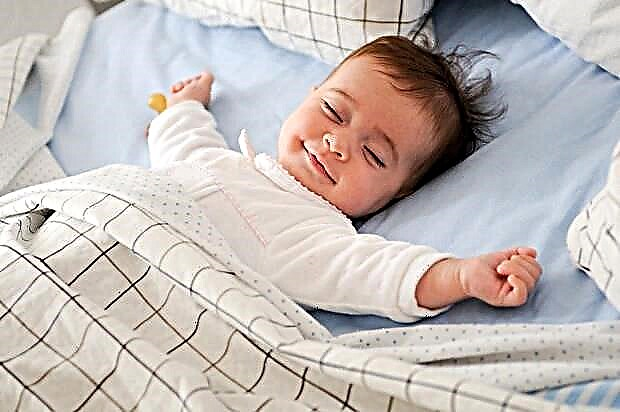There are many very common (and common for a certain age) childhood illnesses. But that it is normal to get sick with them is not from your friends-mothers in the sandbox, but from a doctor. You will never hear from another parent that his child, for example, has lice, because society believes that the reason for this is poor hygiene. And of course, parents are to blame for the lack of hygiene. We are ashamed to discuss certain things about the health of our children, because we think that these things are the result of poor parenting skills or lack of attention to children. Stop blaming yourself and take a look at our list of nasty but common childhood illnesses. What to do if the child "picked up" one of them? You will find out now. Forewarned means armed, as they say.
There are many very common (and common for a certain age) childhood illnesses. Forewarned means armed, as they say.

The child has a bad breath
My daughter is already five years old, and over the years we have managed to get sick with everything we can. Especially often they were sick while getting used to kindergarten. We walk for a week, we get sick for a month. We were treated at home and were in the hospital. Now everything seems to be normalized, we visit the kindergarten regularly. But there was a problem that I didn't pay attention to at first. My daughter began to smell bad from the mouth. Even when the baby was at a distance from me, I could smell an unpleasant smell when talking. What can I say about hugs and kisses. But this is not a reason to deprive a child of affection and tenderness. We tried to brush our teeth more often, rinse our mouth, but nothing helped. It turned out that it wasn’t a matter of hygiene.

What to do
First of all, you need to pay attention to oral hygiene. In adults, bad breath can be due to problems with the gums and teeth or diseases of the gastrointestinal tract, while in children, poor oral hygiene is the main cause of bad breath, dentists say. Teach your child to practice hygiene. It is advisable that he brush his teeth after every meal. Pay attention to the location of your baby's teeth. If they are too tight, buy dental floss and teach your child how to use. With dental floss, he will be able to remove food debris inaccessible to the brush. Make sure that the baby does not forget to brush his tongue, because bacteria multiply there (their waste products are precisely the cause of the unpleasant odor). If all of the above rules are followed, but the smell remains, you should consult a doctor. It is possible that the child develops chronic sinusitis or an ear infection, and the adenoids or tonsils may also be enlarged. (In the case of my son, it turned out that he suffers from chronic sinusitis.)
Children's seborrheic dermatitis
When my friend brought her two-year-old son to our friend's birthday, he wore a cap on his head. “Vanya has seborrheic dermatitis, but I'm afraid that no one will understand me and they will only think that I don't wash his head often enough,” she admitted. It is believed that children's seborrheic dermatitis is a consequence of the presence of maternal hormones in the baby's body left after pregnancy. These hormones cause active sebum secretion, which in turn leads to this diagnosis. Seborrheic dermatitis in infants is yellow crusts or scales. It may be unattractive, but it certainly isn't disgusting. In addition, seborrhea usually does not cause discomfort to the child and, as a rule, disappears by itself in the first year of the baby's life.

What to do
Purchase mineral oil from your local drugstore and rub gently into dermatitis-affected areas. Other oils absorb more slowly and moisturize less well. And mineral oil copes better than others with dermatitis crusts and scales. After rubbing in, wait at least half an hour, (you can even leave it overnight overnight). Wash off the oil with a special baby shampoo. Then comb the crusts with a fine-toothed comb. Do this gently and gently. If the baby is unpleasant or painful, it is better to stop - the scales will fall off over time. Visit your pediatrician if your scalp is red, irritated, or your baby has a rash (on the face, neck, forearms, or buttocks). He'll likely prescribe a cortisone ointment.
If the crusts and scales do not disappear after a year and a half or, conversely, begin to appear again, then you should consult a doctor. Perhaps he will send you for examination. This could be an overreaction caused by shampoo. In the worst case, a fungal infection or psoriasis.
These awful warts
“He has all his hands in warts, and he is so worried about this that he asks to bandage his fingers,” explains the mother of three-year-old Slava, when I and other mothers, picking up their children from kindergarten, wonder what happened to her child.
Warts are a rather unpleasant formation on the skin of a baby, which some children are shy about. They constantly hide the arms and legs affected by this disease. What can be done to protect the child from this trouble?

What to do
A wart is a fairly common occurrence on children's hands and feet (plantar warts). It is a relative of the papilloma virus. The most favorable environment for their growth and reproduction is moisture. When you see a wart, don't panic. Yes, it is unpleasant, but there is nothing terrible and shameful in this. From six months to two years (from the moment of appearance), the warts disappear on their own, the child's immune system copes with them. Therefore, it is not recommended to treat them, unless, of course, they have begun to spread to other parts of the body or cause discomfort to the baby. Reassure your child not to touch the warts (do not try to pull, pick or bite off), otherwise there is a high risk that they "migrate" to other parts of the body, including the face and lips. Bandaging is really one way to prevent this. Self-treatment can sometimes be effective, but in this case, be sure to grind the stratum corneum with a pumice stone several times a week. If home treatments don't work, consult a dermatologist who may recommend cryotherapy, burning, or laser removal of the wart.
Another unpleasant wart-like appearance on a child's body may be a mollusk (small white bump). It appears in the elbow or knee folds, under the arms, in the groin, or between the buttocks. Shellfish are treated and removed in the same way as warts. But it's better when they disappear on their own.
Enterobiasis or, in Russian, pinworms
Once, while reading a forum about children's health, I came across a message full of horror from one mother. She said that one night she noticed that her daughter was constantly scratching her ass. Naturally, she decided to check for a rash or inflammation. But it turned out ... "What I saw was so disgusting!" - summed up the woman.
Yes, most parents shudder at the thought that their child may have worms. However, pinworms are more just a nuisance than a disease, pediatricians say. Enterobiasis is a fairly common story if children play with each other in the ground, and even in an ordinary sandbox. Moreover, it has already been proven that pinworm eggs can enter the body along with dust, as well as through toys. And, of course, one of the main sources can be a common pot or toilet in a kindergarten or school. So if your child is infected, do not sprinkle ashes on his head. This is not your fault.

What to do
The small, white, round worms can cause unbearable itching in the perineum. This mostly happens in the evening / night when they crawl out of the anus to lay eggs on the skin around it. Therefore, in the morning, immediately after the child wakes up, press a piece of tape to the skin around his anus, then take it to a medical laboratory to be examined for the presence of worm eggs on the tape. Most of these infections are mild and heal quickly. Ask your doctor for an itch cream also. To prevent relapse, follow up with your child after treatment: whether he washes his hands thoroughly before eating and after playing in the yard and going to the toilet. Keep his nails tidy by trimming them regularly and brushing them. And try to stop kids from biting their nails, sticking their fingers in their mouths, and scratching their heels.
Oh those lice
This is what people in our country are afraid of, like fire, because it is lice. It is believed that only children from disadvantaged families, homeless people and alcoholics are ill with head lice. Because of this, we feel ashamed, suppress the fact that we are sick. Therefore, head lice has become widespread: we learn that we communicated with the "lousy" only when "guests" appear on the head. Let's say more - and strict adherence to hygiene rules does not guarantee that parasites will not settle on the head. According to statistics, the peak of children's head lice diseases occurs in early autumn, when many return from abroad, from camps and hikes. So, as the new school year begins, regularly examine your child's head thoroughly.

What to do
Treatment usually consists of two stages: applying a special anti-lice product and combing out the lice and nits from the hair. None of these stages work by itself, it is imperative to treat in a complex. Products (shampoos, sprays, and lotions) kill adults and soften the glue that holds the nits to the base of the hair, making it easier to comb out. Another way to soften the glue is to use a 9% vinegar solution diluted 1: 2 with water. It should be applied along the entire length of the hair and left for 30 minutes. Then start combing out the parasites and each time rinse the comb under running water so that the parasites do not fall on the poor baby head again. After the lice have been removed, wash all baby clothes, bedding, bath accessories at a high temperature.
There are no methods of preventing head lice. The only thing that can be advised is to remind the child more often that it is impossible to use other people's combs and put on other people's hats. And long girly hair is better to braid in braids before going outside.
Oh this herpes
Fortunately, this problem did not affect my daughter and I, but many of my friends faced this childish nuisance. Unfortunately, having contracted herpes, a person always gets this "friend" for himself: with severe stress, colds or other diseases associated with a decrease in immunity, he again makes itself felt. But besides this, such a "neighborhood" does not affect health in any way.

What to do
The most difficult thing, mothers assure, is to get children not to comb herpes. After all, it is accompanied by itching, tingling and tingling, and the herpes crust can not wait to be removed. Never let your baby do this: the virus can "migrate" to your hands or face. In this case, you must contact a specialist. At home, herpes is usually treated with antiviral ointments such as Acyclovir, and on the second day of use, an improvement is already noticeable. If after a week it does not come, be sure to see a doctor. Do not forget to give your child a separate towel and dishes, since you can get infected not only through direct contact, but also through objects on which droplets of baby saliva remain.



